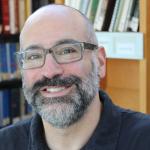Jewish identity. It is quite the buzzword these days. It is the goal set by rabbis, practitioners, places of learning and other religious centers. Jewish identity is the holy grail. The question asked is rarely about defining or making clear what this grand result would look like. Everyone just wants to know how to get there. Unfortunately, life is about the destination and the journey. In terms of Jewish continuity, the destination cannot be reached without a meaningful journey. There are no easy fixes or easy answers. Jewish identity cannot be defined universally and the road to take will vary by institution, denomination, and individuals.
I recently engaged in a week long blogcast hosted by CASJE and the Jack, Joseph, and Morton Mandel Center for Studies in Jewish Education of Brandeis University. The conversation, Beyond Jewish Identity: Rethinking the Purposes of Jewish Education, was meant to build on the knowledge gleaned from the Mandel Center’s Conference on the topic. Reflecting on the blogcast, I authored a piece for eJewish Philanthropy entitled Jewish Identity Complex: Why We Cannot, and Should Not, Get Along. My point was that, as was stated by colleagues, Jewish identity is a vague term that lacks definition or meaning.
Ultimately, I believe that people appreciate the term, Jewish Identity, because it means that people are choosing to be Jewish. That, if we do our job right, Jews will choose to identify as such. Why does this matter? In a world where most are free to practice any religion, people are also free to leave religion. Robert Bellah, in Habits of the Heart, made us all aware of the sociological trend, termed Sheilaism; that of individualism in relation to one’s religious belief and practice. Jewish stakeholders are fighting against the trend. So, although the usage of Jewish Identity may seem vague or cliche even, it is really a home run. A person is choosing to give of oneself for a variety of reasons be they religious, spiritual or ethical.
 There are two areas of concern that I would address. Firstly, what counts as identifying as Jewish? We all carry many roles and labels as members of society. I am a Jew, mother, wife, sister, daughter, woman, employee, educator, learner, feminist, Orthodox, etc. If my self-identifying as Jewish follows twenty or so other labels, is that good enough? If it is a minuscule fraction of my identity, does that qualify?
There are two areas of concern that I would address. Firstly, what counts as identifying as Jewish? We all carry many roles and labels as members of society. I am a Jew, mother, wife, sister, daughter, woman, employee, educator, learner, feminist, Orthodox, etc. If my self-identifying as Jewish follows twenty or so other labels, is that good enough? If it is a minuscule fraction of my identity, does that qualify?
Secondly, there are times when the end goal can and should be the focus of the discussion. With such a vague end result, the steps taken, in my opinion, are equally important. I would argue that we want Jews to care about Judaism. We want it to matter to them. We want them to be committed. How do you teach that? How do you transfer such values?
While the term Jewish identity is somewhat cheapened by its being overused, Judaism is a rich, complicated, historical and, in my opinion, meaningful way of life. You cannot buy in with a single class or experience. You cannot make your child want to be Jewish because they spent a couple of hours with a cantor and successfully delivered a bat mitzvah speech. While values may be taught in classrooms, summer camps and sermons; values are transferred through role modeling. You cannot assure that young Jews will stay Jewish if Judaism is not their role models’ way of life. No matter how good the delivery, how powerful or charismatic the leader, Judaism cannot be pitched as if it is a product. Judaism is a way of life. Identifying as Jewish will only happen if the individual understands Judaism intellectually, spiritually and socially. We all have journeys, what makes it Jewish, that is both the challenge and opportunity.
Dr. Sharon Weiss-Greenberg earned her doctorate in Education and Jewish Studies from New York University. She has years of experience as a formal and informal Jewish educator, and she currently serves as the Director of Recruitment for Yeshivat Maharat and Director of Online Engagement for the Consortium for Applied Studies in Jewish Education.
Editors’ Note: This article is part of the Public Square 2014 Summer Series: Conversations on Religious Trends. Read other perspectives from the Jewish community here.













